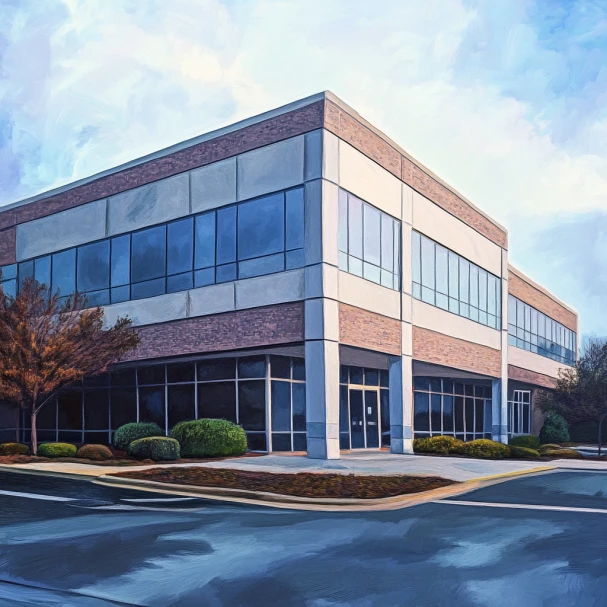Lease Abstraction AI: Streamlining Real Estate Document Management
Sep 15, 2024
The Evolution of Lease Abstraction in Real Estate
Historical Context and Traditional Methods
Lease abstraction has long been a crucial part of commercial real estate (CRE) management. Traditionally, this process involved manually reviewing extensive lease documents to extract important details. This method was not only time-consuming but also prone to errors, particularly for large-scale CRE firms managing multiple assets and properties.
Challenges in Manual Lease Abstraction
The manual approach to lease abstraction faced several challenges:
Time Consumption: Processing a single lease could take hours, especially for CRE companies managing portfolios of hundreds or even thousands of leases.
Human Error: Mistakes in data entry could lead to significant financial discrepancies, missed deadlines, or compliance issues, particularly harmful at the scale of large real estate firms.
Complexity of Legal Language: The intricate legal terms in leases often required specialized knowledge, making it hard to scale this process effectively across large property portfolios.
Technological Advancements in Lease Abstraction
With the rise of technology, new solutions have emerged to tackle these challenges, especially for large CRE firms. AI-driven tools are transforming lease abstraction by automating data extraction and standardization at a scale previously unattainable.
For instance, Trellis's AI solution enhances productivity and accuracy, allowing large CRE firms to quickly respond to market opportunities and manage compliance risks more effectively. This shift is especially valuable for large enterprises, helping them achieve operational efficiency without sacrificing accuracy.
Understanding Lease Abstraction AI
What is Lease Abstraction AI?
Lease Abstraction AI refers to the use of artificial intelligence to simplify the process of extracting important information from commercial leases. For CRE firms managing thousands of leases, this technology automates the tedious task of reading and summarizing leases, making the process faster and more reliable.
Core Technologies Behind Lease Abstraction AI
Optical Character Recognition (OCR): This technology scans and converts lease documents into editable text, allowing for easy data extraction, even from large volumes of scanned documents.
Natural Language Processing (NLP): NLP helps the AI understand complex legal language, ensuring accurate interpretation of lease terms and conditions at scale.
Machine Learning (ML): ML algorithms learn from vast amounts of data, continuously improving their ability to identify key information over time, which is especially useful for large firms handling diverse lease formats.
Key Benefits of Implementing AI in Lease Abstraction
Efficiency: AI can process thousands of lease documents much faster than human teams, significantly reducing the time required for large-scale lease portfolio management.
Accuracy: By minimizing human error, AI ensures that the extracted data is reliable and consistent, an essential benefit for large companies that can't afford costly mistakes.
Cost Savings: Automating lease abstraction can lower operational costs for CRE firms by reducing the need for extensive manual reviews, freeing up resources for higher-level strategic tasks.
In summary, lease abstraction AI is transforming how property managers handle leases, making the process quicker, more accurate, and cost-effective. By leveraging these technologies, businesses can enhance their operations significantly.
Enhancing Efficiency in Property Management

Streamlining Lease Data Extraction
AI technology is transforming how property managers, especially in CRE, handle lease data. By automating the extraction of important information from extensive commercial leases, AI saves time and reduces mistakes, allowing CRE firms to scale their operations effectively.
Reducing Human Error and Increasing Accuracy
One of the biggest advantages for large companies is AI’s ability to reduce human error. In the CRE industry, where even small mistakes can lead to significant financial or legal consequences, AI provides an additional layer of reliability.
Time and Cost Savings for Property Managers
Implementing AI can lead to significant savings, especially for large CRE companies managing vast portfolios. AI helps:
Automate routine tasks, such as lease abstraction, compliance checks, and rent collection.
Provide predictive analytics to foresee maintenance needs and potential lease renewals, preventing costly delays.
By embracing AI, CRE firms can enhance their operational efficiency, improve tenant satisfaction, and increase overall profitability.
Improving Compliance and Risk Management

Ensuring Regulatory Compliance
For CRE firms, staying compliant with various local, state, and federal regulations is crucial. Lease Abstraction AI helps property managers keep track of regulatory updates and ensures that their portfolios remain compliant across multiple regions.
Automated checks for compliance with local, state, and federal laws.
Regular updates to keep up with changing regulations.
Easy access to compliance reports for audits.
Mitigating Risks Through Accurate Data
Accurate data is essential for reducing risks in CRE property management. By using AI for lease abstraction, large firms can:
Identify potential risks, such as unfavorable clauses or hidden costs in lease agreements.
Analyze historical data to predict future risks and make informed business decisions.
Automated Alerts and Notifications
AI can also provide automated alerts and notifications to help large CRE firms stay on top of important deadlines and compliance issues, minimizing risks in managing large portfolios.
Case Studies and Real-World Applications

Success Stories in Commercial Real Estate
In the commercial real estate sector, companies are increasingly turning to AI for lease abstraction. One notable example is Trellis AI, which has transformed how firms process documents. By automating data extraction, Trellis AI allows teams to focus on more strategic tasks instead of getting bogged down in manual processing. This has led to significant improvements in productivity and compliance checks.
Lessons Learned from Early Adopters
Early adopters of lease abstraction AI in CRE have shared valuable insights:
Start small: Implementing AI in phases can help teams adjust and learn.
Focus on integration: Ensure that the AI solution works well with existing systems.
Train staff: Providing training on new tools is crucial for maximizing their potential.
The shift to AI in real estate is not just about technology; it’s about rethinking how we manage properties and engage with tenants. By learning from these case studies, other firms can better understand the potential of AI in revolutionizing property management.
Future Trends in Lease Abstraction AI
Emerging Technologies and Innovations
The future of lease abstraction AI is bright, with new technologies set to change the landscape. We can expect:
Advanced NLP for Complex Leases: As Natural Language Processing (NLP) improves, AI will become even more capable of handling complex and highly technical lease documents, particularly useful for CRE firms with diverse property portfolios.
Integration with IoT: The Internet of Things (IoT) will increasingly play a role in CRE management, allowing AI to pull real-time data from connected buildings. This data can be cross-referenced with lease terms to provide actionable insights, such as real-time updates on compliance or performance metrics.
Enhanced Predictive Analytics: Predictive analytics will become more powerful, enabling CRE firms to forecast lease renewal rates, predict tenant behaviors, and anticipate market trends more accurately. This capability can significantly impact long-term portfolio strategies.
Predictions for the Next Decade
As we look ahead, the following trends are likely to shape the CRE industry:
Increased Automation: More tasks, from lease abstraction to compliance checks, will be fully automated, reducing the need for manual interventions.
AI-Assisted Decision Making: AI will not only process data but also assist in strategic decision-making, providing CRE leaders with actionable insights based on historical data and predictive models.
Regulatory Adaptations: With AI handling much of the lease abstraction process, the legal and regulatory landscape will adapt to ensure these technologies meet compliance requirements.
Conclusion
In summary, AI is revolutionizing lease management, particularly for large CRE firms. By integrating AI tools like Trellis, property managers can streamline operations, reduce human error, and save significant time and resources. As AI technologies continue to evolve, they will unlock even more opportunities for efficiency and growth in the CRE sector.
By embracing these innovations now, large enterprises will be better positioned to adapt to future industry trends and maintain a competitive edge in a rapidly evolving market.

> Start today <
Click below to get access to our product and explore how Trellis can help you and your organization unlock new insights!
